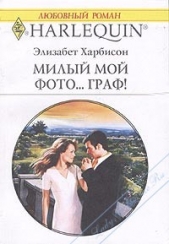| A powerful scent of turpentine and the harsh savor of the eucalyptus could be distinguished. | В нем можно было различить сильный запах пихты и терпкий аромат эвкалиптов. |
| Forestier drank it in with short and fevered gasps. | Форестье вдыхал его с лихорадочной торопливостью. |
| He clutched the arm of his chair with his nails, and said in low, hissing, and savage tones: | Но вдруг он впился ногтями в ручки кресла, и в тот же миг послышался его свистящий, яростный шепот: |
| "Shut the window. | - Закрой окно. |
| It hurts me; I would rather die in a cellar." | Мне только хуже от этого. Я предпочел бы издохнуть в подвале. |
| His wife slowly closed the window, and then looked out in space, her forehead against the pane. | Госпожа Форестье медленно закрыла окно и, прижавшись лбом к стеклу, стала смотреть вдаль. |
| Duroy, feeling very ill at ease, would have liked to have chatted with the invalid and reassured him. | Дюруа чувствовал себя неловко; ему хотелось поговорить с больным, ободрить его. |
| But he could think of nothing to comfort him. | Но он не мог придумать ничего утешительного. |
| At length he said: "Then you have not got any better since you have been here?" | - Так ты здесь не поправляешься? - пробормотал он. |
| Forestier shrugged his shoulders with low-spirited impatience. | Форестье нервно и сокрушенно пожал плечами. |
| "You see very well I have not," he replied, and again lowered his head. | - Как видишь, - сказал он и снова понурил голову. |
| Duroy went on: "Hang it all, it is ever so much nicer here than in Paris. We are still in the middle of winter there. | - Дьявольщина! А насколько же здесь лучше, чем в Париже! Там еще зима вовсю. |
| It snows, it freezes, it rains, and it is dark enough for the lamps to be lit at three in the afternoon." | Снег, дождь, град, в три часа уже совсем темно, приходится зажигать лампу. |
| "Anything new at the paper?" asked Forestier. | - Что нового в редакции? - спросил Форестье. |
| "Nothing. | - Ничего. |
| They have taken on young Lacrin, who has left the _Voltaire_, to do your work, but he is not up to it. | На время твоей болезни пригласили из "Вольтера" этого коротышку Лакрена. Но он еще зелен. |
| It is time that you came back." | Пора тебе возвращаться! |
| The invalid muttered: "I--I shall do all my work six feet under the sod now." | - Мне? - пробормотал больной. - Я уже теперь буду писать статьи под землей, на глубине шести футов. |
| This fixed idea recurred like a knell _apropos_ of everything, continually cropping up in every idea, every sentence. | Навязчивая идея возвращалась к нему с частотою ударов колокола, по всякому поводу проскальзывала в каждом его замечании, в каждой фразе. |
| There was a long silence, a deep and painful silence. | Воцарилось молчание, тягостное и глубокое. |
| The glow of the sunset was slowly fading, and the mountains were growing black against the red sky, which was getting duller. | Закатный пожар постепенно стихал, и горы на фоне темневшего, хотя все еще алого неба становились черными. |
| A colored shadow, a commencement of night, which yet retained the glow of an expiring furnace, stole into the room and seemed to tinge the furniture, the walls, the hangings, with mingled tints of sable and crimson. | Тень, сохранявшая отблеск догорающего пламени, предвестницей ночи проникнув в комнату, окрасила ее стены, углы, обои и мебель в смешанные чернильно-пурпурные тона. |
| The chimney-glass, reflecting the horizon, seemed like a patch of blood. | Зеркало над камином, отражавшее даль, казалось кровавым пятном. |
| Madame Forestier did not stir, but remained standing with her back to the room, her face to the window pane. | Г оспожа Форестье, припав лицом к окну, продолжала стоять неподвижно. |
| Forestier began to speak in a broken, breathless voice, heartrending to listen to. | Форестье вдруг заговорил прерывающимся, сдавленным, надрывающим душу голосом: |
| "How many more sunsets shall I see? | - Сколько мне еще суждено увидеть закатов?.. |
| Eight, ten, fifteen, or twenty, perhaps thirty--no more. You have time before you; for me it is all over. And it will go on all the same, after I am gone, as if I was still here." | Восемь... десять... пятнадцать, двадцать, может быть, тридцать, - не больше... У вас еще есть время... А для меня все кончено... И все будет идти своим чередом... после моей смерти, - так же, как и при мне... |
| He was silent for a few moments, and then continued: "All that I see reminds me that in a few days I shall see it no more. It is horrible. I shall see nothing--nothing of all that exists; not the smallest things one makes use of--the plates, the glasses, the beds in which one rests so comfortably, the carriages. | - На что бы я ни взглянул, - немного помолчав, продолжал Форестье, - все напоминает мне о том, что спустя несколько дней я ничего больше не увижу... Как это ужасно... не видеть ничего... ничего из того, что существует... самых простых вещей... стаканов... тарелок... кроватей, на которых так хорошо отдыхать... экипажей. |
| How nice it is to drive out of an evening! How fond I was of all those things!" | Как приятны эти вечерние прогулки в экипаже... Я так любил все это! |
| He nervously moved the fingers of both hands, as though playing the piano on the arms of his chair. | Пальцы его быстро и нервно бегали по ручкам кресла, как если бы он играл на рояле. |
| Each of his silences was more painful than his words, so evident was it that his thoughts must be fearful. | Каждая пауза, которую он делал, производила еще более тяжелое впечатление, чем его слова, и чувствовалось, что в это время он думает о чем-то очень страшном. |
| Duroy suddenly recalled what Norbert de Varenne had said to him some weeks before, | И тут Дюруа вспомнил то, что ему не так давно говорил Норбер де Варен: |
| "I now see death so near that I often want to stretch out my arms to put it back. | "Теперь я вижу смерть так близко, что часто мне хочется протянуть руку и оттолкнуть ее. |
| I see it everywhere. | Я нахожу ее всюду. |
| The insects crushed on the path, the falling leaves, the white hair in a friend's beard, rend my heart and cry to me, | Букашки, раздавленные посреди дороги, сухие листья, седой волос в бороде друга - все ранит мне сердце и кричит: |
| 1 Behold!'" | "Вот она!" |
| He had not understood all this on that occasion; now, seeing Forestier, he did. | Тогда он этого не мог понять; теперь, при взгляде на Форестье, понял. |
| An unknown pain assailed him, as if he himself was sensible of the presence of death, hideous death, hard by, within reach of his hand, on the chair in which his friend lay gasping. | И еще не испытанная им безумная тоска охватила его: ему вдруг почудилось, будто совсем близко от него, на расстоянии вытянутой руки, в кресле, где задыхался больной, притаилась чудовищно уродливая смерть. |
| He longed to get up, to go away, to fly, to return to Paris at once. | Ему захотелось встать, уйти отсюда, бежать, как можно скорей вернуться в Париж! |
| Oh! if he had known he would not have come. | О, если б он знал, он ни за что не поехал бы в Канн! |
| Darkness had now spread over the room, like premature mourning for the dying man. | Ночной мрак, словно погребальный покров, раньше времени накинутый на умирающего, мало-помалу окутал всю комнату. |
| The window alone remained still visible, showing, within the lighter square formed by it, the motionless outline of the young wife. | Можно было различить лишь окно и в его светлом четырехугольнике неподвижный силуэт молодой женщины. |
| Forestier remarked, with irritation, "Well, are they going to bring in the lamp to-night? | - Что же, дождусь я сегодня лампы? - с раздражением спросил Форестье. |
| This is what they call looking after an invalid." | - Это называется уход за больным! |
| The shadow outlined against the window panes disappeared, and the sound of an electric bell rang through the house. | Темный силуэт, вырисовывавшийся на фоне окна, исчез, и вслед за тем в гулкой тишине дома резко прозвучал звонок. |
| A servant shortly entered and placed a lamp on the mantelpiece. | Немного погодя вошел слуга и поставил на камин лампу. |
| Madame Forestier said to her husband, "Will you go to bed, or would you rather come down to dinner?" | - Хочешь лечь или сойдешь вниз обедать? -обратилась к мужу г-жа Форестье. |
| He murmured: "I will come down." | - Сойду вниз, - прошептал он. |
| Waiting for this meal kept them all three sitting still for nearly an hour, only uttering from time to time some needless commonplace remark, as if there had been some danger, some mysterious danger in letting silence endure too long, in letting the air congeal in this room where death was prowling. | В ожидании обеда все трое еще около часа сидели неподвижно, порою обмениваясь пошлыми, ненужными словами, как будто слишком долгое молчание таило в себе опасность, неведомую опасность, как будто им во что бы то ни стало надо было не дать застыть немоте этой комнаты, -комнаты, где поселилась смерть. |
| At length dinner was announced. | Наконец обед начался. |
| The meal seemed interminable to Duroy. | Дюруа он показался долгим, бесконечно долгим. |
| They did not speak, but ate noiselessly, and then crumbled their bread with their fingers. | Все ели молча, бесшумно, затем принимались лепить хлебные шарики. |
| The man servant who waited upon them went to and fro without the sound of his footsteps being heard, for as the creak of a boot-sole irritated Charles, he wore list slippers. | Слуга в мягких туфлях - стук каблуков раздражал Шарля - неслышно входил, уходил, подавал кушанья. |
| The harsh tick of a wooden clock alone disturbed the calm with its mechanical and regular sound. | Тишину нарушало лишь мерное качанье маятника с его механическим, резким "тик-так". |


























